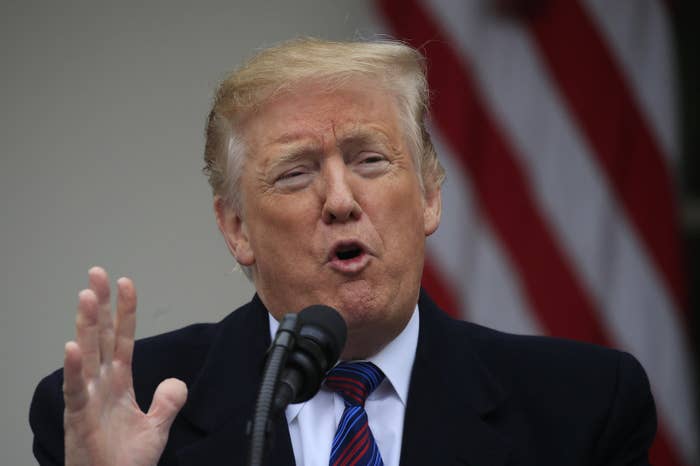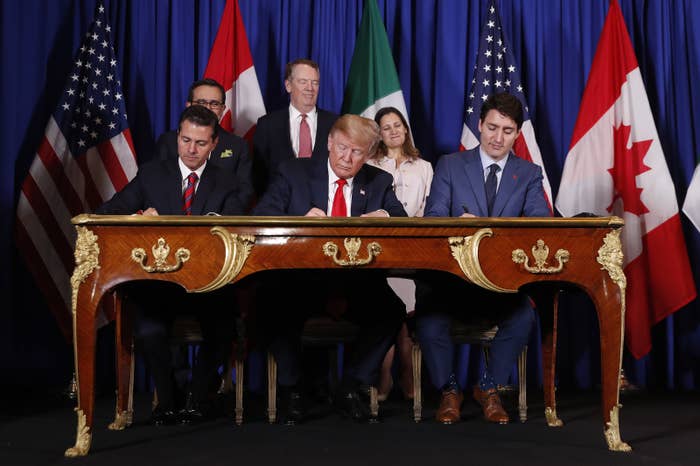
President Trump wants billions in taxpayer money to go toward building a border wall, claiming without evidence that the US will get the money back via benefits from a new trade deal with Canada and Mexico.
The trouble is, the USMCA trade deal hasn’t even been approved yet. Experts don't think it differs much from the existing NAFTA trade agreement it’s supposed to replace. And even if the agreement does bring more jobs to the US, channeling that growth into funding the wall will fall on US taxpayers — not Mexico, which Trump has long claimed will pay for the project.
“We will be taking in billions and billions of dollars more money for the United States including jobs, including companies that won’t be leaving us anymore and going to Mexico and in some cases Canada, to a lesser extent,” Trump told reporters Friday at a Rose Garden press conference.
“We will take in billions and billions of dollars, far more than the cost of the wall. The wall is peanuts compared to what the value of this trade deal is to the United States,” he added.

But analysts aren’t actually expecting much to change if Congress approves the USMCA deal, which has so far only been signed by Trump, Canadian Prime Minister Justin Trudeau, and Mexican President Enrique Peña Nieto. With the House of Representatives now controlled by Democrats, there’s no guarantee the trade deal will pass Congress.
“While there are positive things in this proposed trade agreement, it is just a list without real enforcement of the labor and environmental protections,” House Speaker Nancy Pelosi said in a statement in December.
It’s been called NAFTA 2.0, and largely, it sticks to the framework that NAFTA created in 1994.
Here’s some of what’s changing:
*75% of car components must be made in North America, up from NAFTA’s 62.5%.
*More auto parts will have to be made by workers who earn at least $16 an hour.
*US dairy farmers will have more opportunities to sell their products in Canada, but not by much.
*There are lengthier protections on intellectual property, including digital materials and pharmaceuticals.
That might mean fewer auto industry jobs move to Mexico, which saw an explosion in its own industry under NAFTA as US plants cut jobs. But nothing in the proposed trade deal would require the Mexican government to pay money to the US government.
The US International Trade Commission also hasn’t yet estimated what the economic impact of the trade deal would be.
Mexico is paying for the Wall through the new USMCA Trade Deal. Much of the Wall has already been fully renovated or built. We have done a lot of work. $5.6 Billion Dollars that House has approved is very little in comparison to the benefits of National Security. Quick payback!
On Friday, Trump said the US government would gain revenue via taxes if more companies stayed in the country. But that money, of course, would come from US business owners and employees — not Mexico.
“What we save on USMCA, the new trade deal we have with Mexico and Canada, what we save on that just with Mexico will pay for the wall many times over just in the period of a year, two years, and three years,” Trump said. “So I view that as absolutely Mexico is paying for the wall.”
So if the trade deal is approved, and if it keeps more jobs in the US, and if that means more people are paying more taxes, the US government could see an increase in its revenue.
Will that money be spent on a wall? That, under the Constitution, will be up to Congress.
